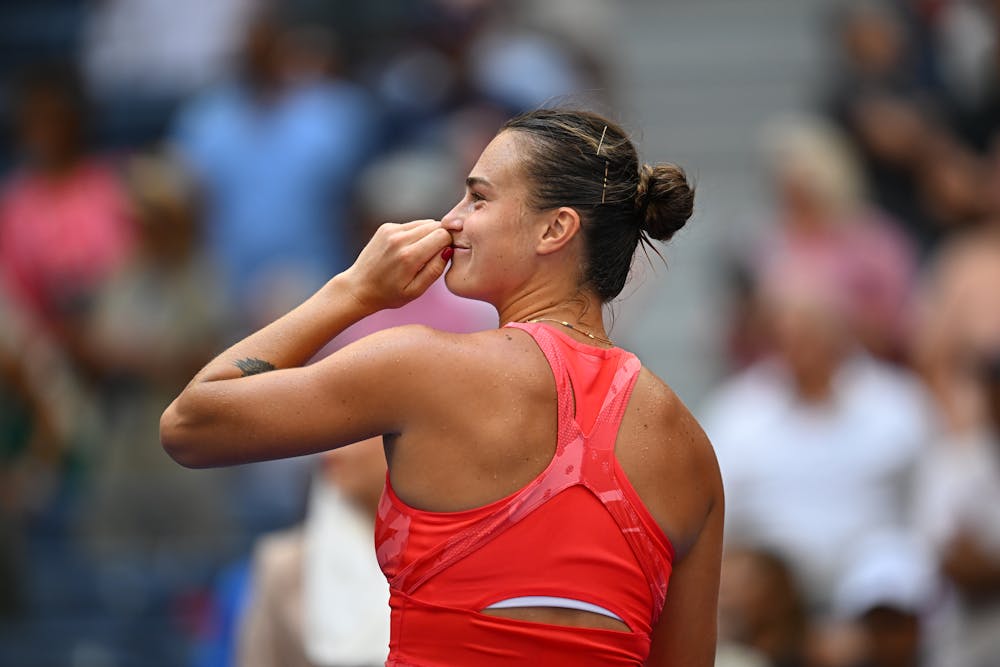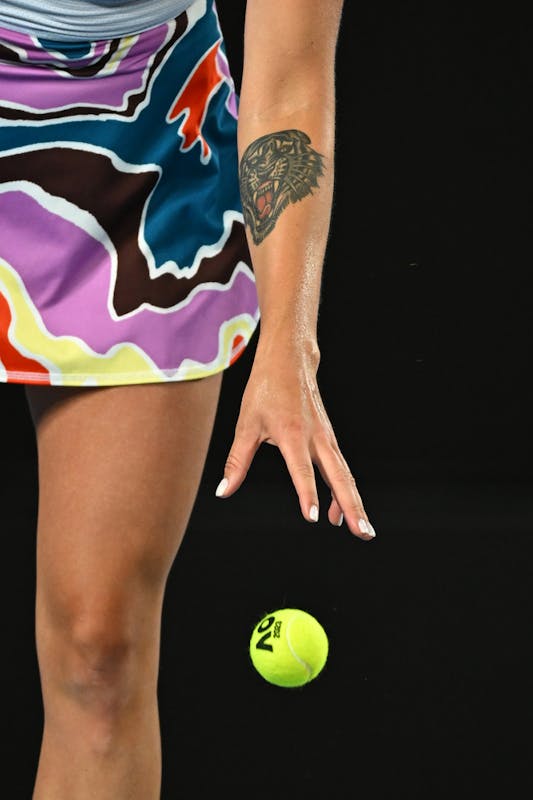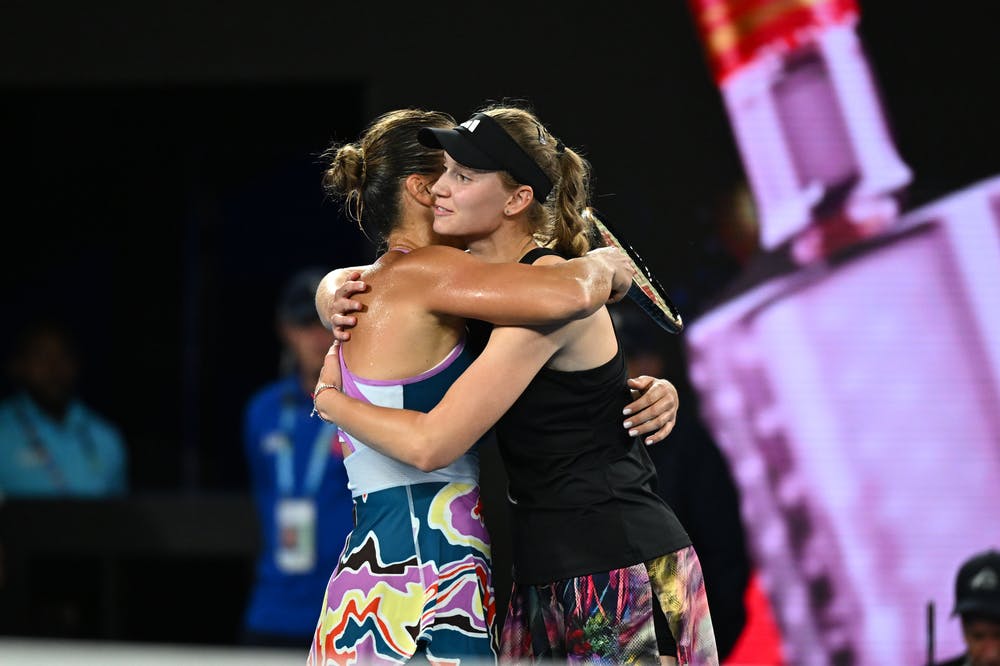There's a tiger at the summit of world tennis. That's right, Aryna Sabalenka is the 29th WTA world No.1, ending Roland-Garros champion Iga Swiatek's 75-week reign at the helm of women's tennis.
Sabalenka's soul searching earns top spot
23 Grand Slam victories in 2023 have propelled the Australian Open champion to the peak.

2023 has witnessed the 25-year-old blossom into a major player, a true champion and now the leader of the pack.
Sabalenka has justified her new ranking on the major stage, with 23 Grand Slam match wins this campaign. Only three players this century have won more in a season, pitched in the same company as Serena Williams, Justin Henin and Jennifer Capriati.
The tiger face tattooed on her forearm couldn't be more apt. Raw power, roaring passion, Sabalenka can rip though her opponent's game with devastating effect.

That's nothing new. Ever since a 2018 WTA Newcomer of the Year award, it's been a case of how to harness her extensive armoury, alongside containing her heart-on-the-sleeve emotions.
Flashback to the beginning of 2022 and a tearful Sabalenka was shackled by serving troubles, double faults dissolving her resolve, her confidence was completely disintegrated. A year of soul searching ensued.
Away from the match court Sabalenka was working incredibly hard and also enlisted help from a sports psychologist to "get to know myself better."
By the end of 2022, Sabalenka was back on track with a semi-final showing at the US Open and then a runner-up spot at the season-ending WTA Finals.
So close, but still the major prizes evaded this explosive talent's grasp.
"I really needed those tough losses, it was like a preparation for me," stated Sabalenka in Melbourne back in January.
"I just changed how I feel. I start respect myself more. I start to understand that actually I'm here because I work so hard and I'm actually good player."
That mental breakthrough erased heartbreak from three Grand Slam semi-finals, to then launch to Australian Open glory, lifting a maiden major by defeating Elena Rybakina in a riveting final.

Sabalenka had achieved her life-time goal by standing alone. Yes, she has her tightknit team, but the self discovery was the key component.
"I decided to stop working with a psychologist,” Sabalenka revealed at the Australian Open.
“I realised that nobody than me will help, you know? I spoke to my psychologist, saying, 'Listen, I feel like I have to deal with that by myself, because every time hoping that someone will fix my problem, it’s not fixing my problem.’
“I just have to take this responsibility and deal with that. I’m my psychologist.”
A mental awareness, her scorching power play was under control, it was time for Sabalenka to chase down Swiatek's No.1 ranking.
They split duels in clay finals on the Road to Roland-Garros with Swiatek prevailing in Stuttgart, then Sabalenka striking back in Madrid.
She had the chance to steal away top spot at Roland-Garros, but Karolina Muchova reeled in Sabalenka from match point down at 2-5 in the decider.
"I think at the French Open it went into my head and I let this thing distract me," Sabalenka revealed to WTA Insider, when collecting her world No.1 trophy in New York.
"It was a little bit painful, to be honest. I was really p***ed after the match because it was kind of like going back to the old habits and not focusing on myself. I was focusing on the rest of the things, which are, honestly, not really important."
Five matches, 10 sets, Sabalenka stormed into the US Open semi-finals earlier this month. An astonishing 0-6, 7-6(1), 7-6[10-5] comeback over Madison Keys fired the 25-year-old into the final.
Old habits returned, Sabalenka seemed to be wrestling with herself as much as Coco Gauff's game. Sabalenka's emotions got the better of her as the teenager stole away the silverware.
Even as a Grand Slam champion, even as the world No.1, Sabalenka is adamant there is plenty of work to do.
"It's a process. We're all learning. And I guess it's a lesson for me I will learn and then come back stronger," said an assured Sabalenka following the US Open final.
"I started overthinking, and because of that I started kind of losing my power.
"The good news is that it's me against me. The bad one is that I'm still having these issues playing against myself.
 ROLAND-GARROS
18 May - 7 June 2026
ROLAND-GARROS
18 May - 7 June 2026

